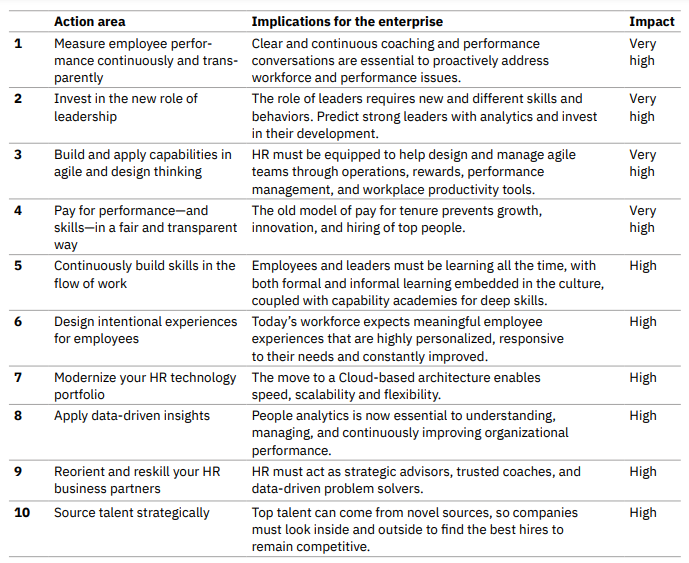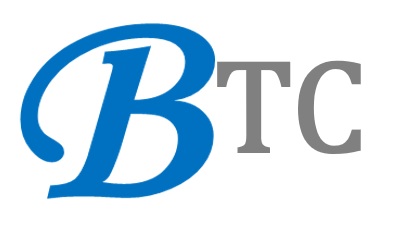
According to a just-published report by IBM, Accelerating the Journey to HR 3.0, there are 10 essential areas that HR professionals need to address to transform the talent management process.
HR 3.0 is broadly defined as a digital focus on employee experience, design thinking, chatbots, transparency, actionable insights, critical skills and attrition rates.
Among the key takeaways of the report was that 70% of HR executives believe the function is ripe for reinvention, but that only 10% are effectively using HR 3.0 strategies. In addition, talent specialists plan to double their efforts to upskill their HR teams over the next two years.
According to the report, “In practice, this means building a workforce that is diverse and inclusive, bringing together individuals with different skills, talents and ideas and giving them room to innovate.
“It also means providing flexibility in work location – especially in times of disruption from weather events or disease outbreak – while making sure employees have full access to all the tools they need to be productive.”
However, there is a disconnect. The report identified a perception gap between what leaders and employees believe about how effectively organisations are addressing the upskilling of employees. Almost three-quarters (74%) of executives believe they have been helping their employees learn the skills needed to work in a new way. But just 38% of employees agree. Quite a discrepancy.
According to the report, the 10 action areas that need to be addressed are:

The report went on to say that the impact of the Covid-19 means that employers must take a more active role in the health and overall wellbeing of employees – that it is both expected and necessary.
Again there is a perception gap. With 80% of employers saying they are supporting the physical and emotional health of their workforce, while less than half (46%) of employees say they feel that support.
To illustrate a good response to this issue of employee wellbeing, the report went into a case study of fast-food chain Burger King in Brazil and its response as the pandemic hit in 2020. By using AI and cloud-based services, it was able to stay close to its 18,000- strong workforce and rapidly address their concerns with a tool that acted as a virtual agent during the pandemic.
After the adoption of the virtual assistant connected to the WhatsApp accounts of Burger King employees, enabling them to get HR-related information via their mobile devices.
However the platform wasn’t just for pandemic-related issues. In addition to Covid-19-related inquiries, employees also consulted with the tool on topics such as salary, remuneration and benefits.
This post is written by Robert Blain.
The original post link: https://www.humanresourcesonline.net/10-essential-hr-skills-for-the-future

